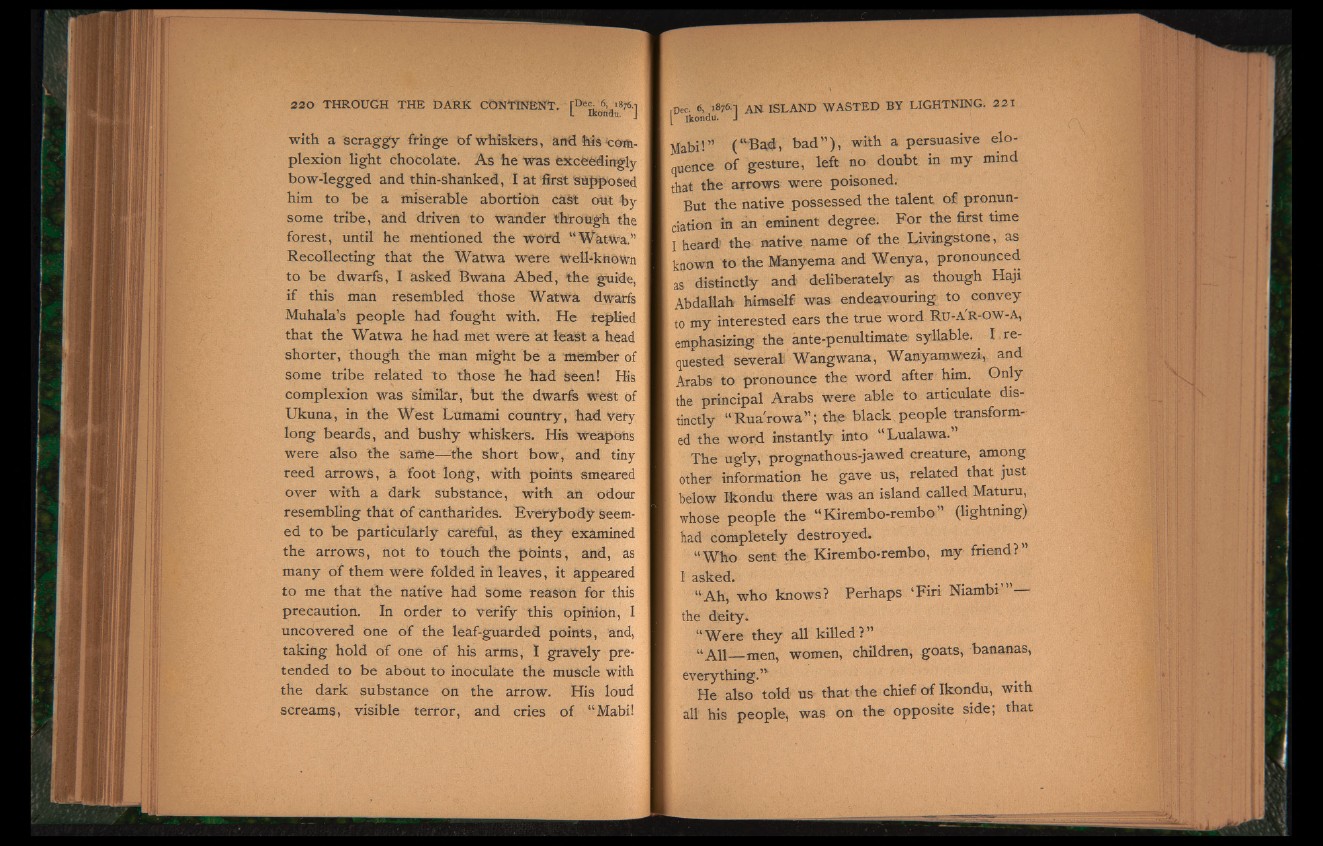
with a scraggy fringe bf whiskers, and Ms bom-
plexion light chocolate. As he was exceedingly
bow-legged and thin-shanked, I at first (supposed
him to be a miserable abortion cast out by
some tribe, and driven to wander through the
forest, until he mentioned the word “WktWa.”
Recollecting that the Watwa were Well-known
to be dwarfs, I asked Bwana Abed, the guide,
if this man resembled those Watwà dwarfs
Muhala’s people had fought with. He replied
that the Watwa he had met were at least a head
shorter, though the man might be a member of
some tribe related to those he had seen! His
complexion was similar, but the dwarfs west Of
Ukuna, in the West Lumami country, had very
long beards, and bushy whiskers. His weapons
were also the same— the short bow, and tiny
reed arrows, a foot long, with points smeared
over with a dark substance, with an odour
resembling that of cantharides. Everybody Seemed
to be particularly careful, as they examined
the arrows, not to touch the points, and, as
many of them were folded itt leaves, it appeared
to me that the native had some reason for this
precaution. In order to verify this opinion, I
uncovered one of the leaf-guarded points, and,
taking hold of one of his arms, I gravely pretended
to be about to inoculate the muscle with
the dark substance on the arrow. His loud
screams, visible terror, and cries of “Mabi!
Mabi!” ( “Bad, b a d ” ) , with a persuasive eloquence
of gesture, left no doubt in my mind
that the arrows were poisoned.
But the native possessed the talent of pronunciation
in an eminent degree. For the first time
I heard the native name of the Livingstone, as
known to the Manyema and Wenya, pronounced
as distinctly and deliberately as though Haji
Abdallah himself was endeavouring to convey
to my interested ears the true word Ru-A'R-OW-A,
emphasizing the ante-penultimate syllable. ^ I requested
several Wangwana, Wanyamwezi, and
Arabs to pronounce the word after him. Only
the principal Arabs were able to articulate distinctly
“ Rua'rowa” ; the black, people transformed
the word instantly into “ Lualawa.”
The ugly, prognathous-jawed creature, among
other information he gave us, related that just
below Ikondu there was an island called Maturu,
whose people the “ Kirembo-rembo” (lightning)
had completely destroyed.
“Who s e n t the Kirembo-rembo, my friend?”
I asked. #
“Ah, who knows? Perhaps ‘Firi Niambi
the deity.
“Were they all killed?”
“All— men, women, children, goats, bananas,
everything."
He also told us that the chief of Ikondu, with
all his people, was on the opposite side; that